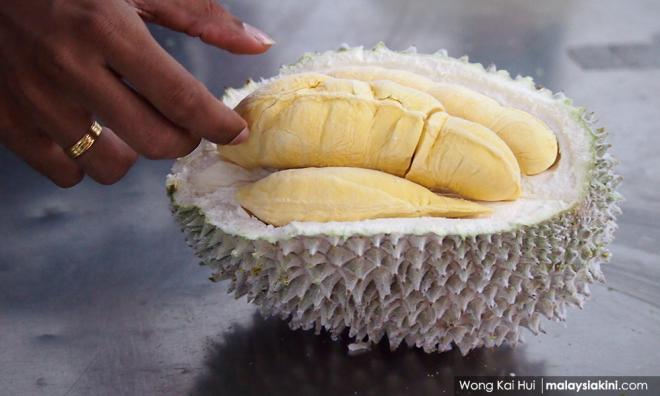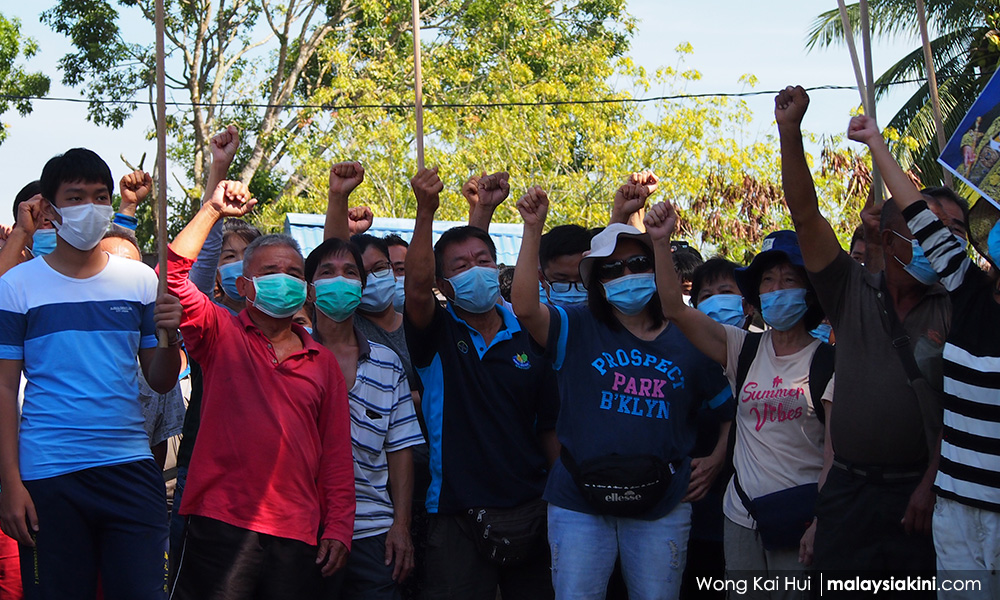
If anyone thinks that dealing with the staff of the Road and Transport Department (RTD) is bad, just wait till you meet the little Napoleons in the Land Office.
No joint-venture (JV) company would be excited in hectares of swampy, malaria-infested land, with little or no access to the bog. Would it show interest in hilly land covered in impenetrable virgin jungle? Of course not.
At one time, few farmers had the money to buy land, so they grew crops on the jungle verges, with or without the permission of the state.
Today, development and urban sprawl have brought the twin problems of greed and commercial exploitation to the farmer's doorstep, as happened in Raub.
The Pahang JV company is only interested in the farmers' area because of world demand for Musang King durians, the presence of mature fruit-bearing trees, the cleared land, easy access, good drainage and irrigation, and the presence on the plots, of small huts for storing tools and taking shelter, whilst waiting for the fruits to fall.
Raub, famous for its gold mining, is now the centre of another type of tussle - the golden flesh of the Musang King durian.
Around the country, there have been many land grabs; pomelo smallholdings in Tambun, vegetable farms in Chemor, a tea plantation in Lenggong, durian orchards in Raub, and tropical hardwoods from nature reserves.
Farmers said that the Land Office (and Federal Agricultural Marketing Authority, Fama) encouraged them to plant crops to promote self-sufficiency, and not leave the land idle.
Many people accuse the Raub farmers of being illegal squatters. Others claim that the Pahang JV group are greedy land grabbers. No-one speaks about the other guilty party; the Jabatan Tanah (Land Department).
For decades, the Land Department has been complicit in many questionable purchases. In Ipoh, a former strongman in Umno-Baru, once alleged, "Each time I enter the Land Office, it is RM100 each, from the office boy to the clerk and the other people whose palms I have to grease until I reach the Pengarah's office."
This man had former menteris besar as friends, but how many ordinary members of the rakyat can enjoy the same privilege?
Other disgruntled visitors to the Land Office said, "We are at the mercy of the staff. I dare not complain, because my file will go missing or be placed at the bottom of the pile. Some people have to pay just to retrieve their ‘lost’ application."
In Raub, the durian farmers said that their application to purchase the land had been repeatedly rejected, without any explanation. So, how did the JV group receive the go-ahead so easily?

When you read about the people fronting the JV group, you realise that in Malaysia, it's who you know, and not, what you know, that matters. Hard work and persistence are not important, but patronage and sycophancy count, in the Ali-Baba work ethic.
Cultivated land
The people who claim that the farmers are illegal squatters and should be kicked out, need to cast their minds back to the past.
Older Malaysians know that at one time, Raub, (as was Tambun and the Chemor/Sungai Siput countryside) were areas of heightened communist activity.
Cultivated land was limited to rubber trees and later oil palm. Cocoa and coffee were grown until they perished from disease. World prices and demand dictated the crops that were grown.
During the Emergency, Chinese farmers were resettled into New Villages. The farmers were allowed out of the heavily-guarded New Villages, during the day, to tend to their farms. Communist sightings had to be reported.
When the agriculture industry became more active, most villagers - Malay, Chinese and Indian - would approach the Land Office to obtain Temporary Occupation Licences (TOL). A fee was paid, and the TOL was given in the name of the licence holder and was not transferable should he die. TOLs could be withdrawn at any time.
So, why weren't the durian farmers in Raub, given first refusal? These men have a direct bond with the land and their crops. They became successful and they did not depend on government handouts. Granting the ownership of the land to an unknown JV company has only increased the rakyat's wrath.
A few months ago, Perak Menteri Besar Ahmad Faizal Azumu rewarded the state’s football players with land grants on which the vegetable farmers of Chemor had toiled for three generations. The MB was chuffed that Perak had beaten Terengganu in the 2018 Malaysia Cup. Ipohites would rather have a fresh supply of cheap vegetables, than footballers with large plots of land.
The irony is that former MBs have posed with the farmers of Tambun to showcase pomelos when promoting tourism in Perak. Perhaps, the same selfie was done in Raub, to promote eco- and agri-tourism in Pahang.
Once, on a trip to Perhentian island, the fishermen took my family to a beautiful, secluded cove on the island. When I asked if the islanders owned the land, they said, "No. A politician and VIP own it all." What chance have poor villagers against the elite?
The farmers are praised for putting Pahang on the tourism map with their durians; but they are not good enough to receive titles for the land.
Pahang should grant the farmers their land titles, or let Thailand once again become the world's leading exporter of durians.



No comments:
Post a Comment
Note: Only a member of this blog may post a comment.